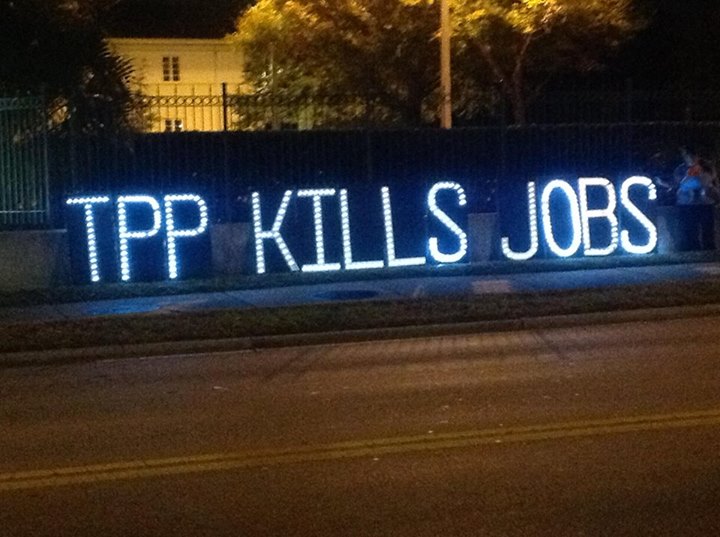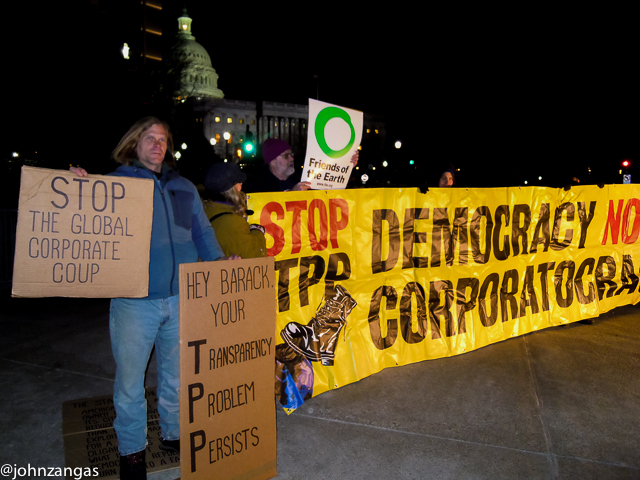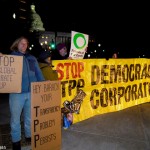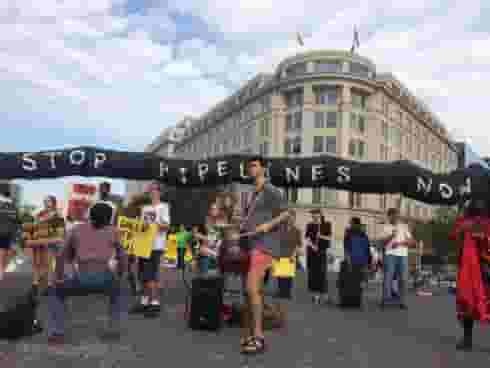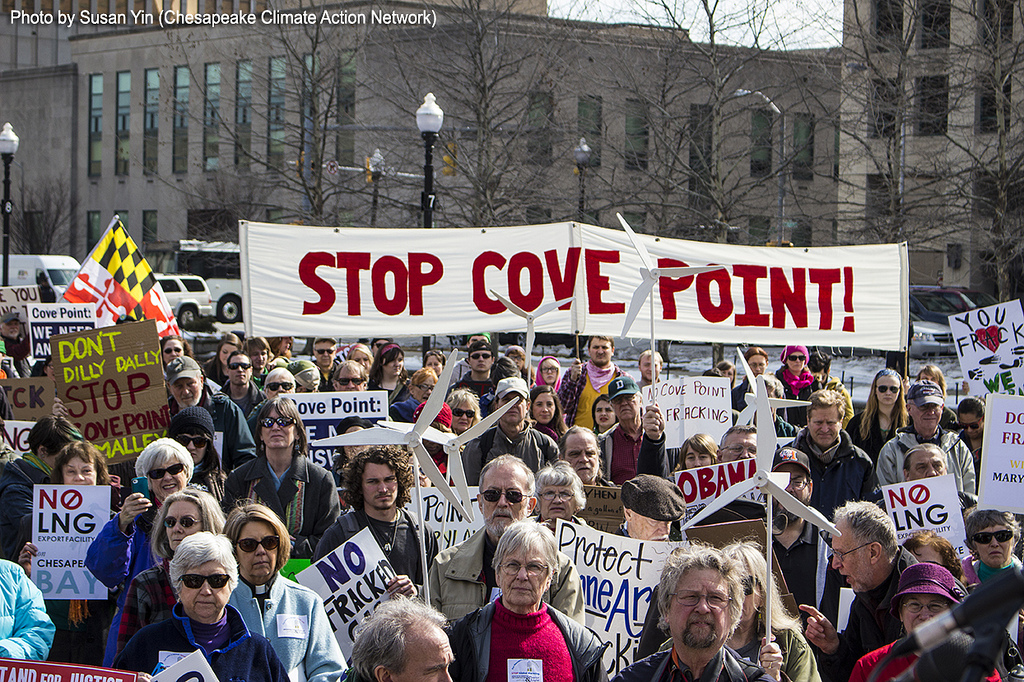By Anne Meador
About twenty protestors with a large yellow banner that said “Democracy Not Corporatocracy” waited in the dark to greet President Obama as he arrived at the U.S. Capitol last night to deliver his State of the Union address. They shivered in the 10-degree wind chill.
“We are out here because the president is going to be speaking about wealth inequality,” said Dr. Margaret Flowers, one of the protestors. “And right now he’s trying to push a bill through Congress called fast track that would allow him to sign the Trans Pacific Partnership agreement that will actually worsen wealth inequality.”
The small group opposing the Trans Pacific Partnership (TPP), a trade deal among eleven Asian and Latin American nations, might have appeared to be an isolated demonstration during Washington’s late January deep freeze. But a growing chorus of opposition is joining them to block the TPP and the fast track bill that would hand Obama broad powers to negotiate trade agreements without Congressional oversight.
They include members of the President’s own party. One hundred and fifty-three House Democrats just sent a letter to Obama expressing their objection to the TPP. “The United States cannot afford another trade agreement that replicates the mistakes of the past,” the letter said.
Past mistakes, to many minds, would include NAFTA, the North American Free Trade Agreement. The TPP is a ramped-up version of it, detractors say.
“This is NAFTA on a global scale. This is NAFTA on steroids,” said protestor Barry Knight.
Later inside the Capitol, President Obama said in his State of the Union that jobs were the remedy to stagnant upward mobility. He made the case that the TPP and the TTIP, a similar trade agreement with Europe, would be job creators.
“Let’s do more to help the entrepreneurs and small business owners who create most new jobs in America,” Obama said. “Over the past five years, my administration has made more loans to small business owners than any other. And when ninety-eight percent of our exporters are small businesses, new trade partnerships with Europe and the Asia-Pacific will help them create more jobs. We need to work together on tools like bipartisan trade promotion authority to protect our workers, protect our environment, and open new markets to new goods stamped ‘Made in the USA.’”
Yet the demonstrators maintained the TPP would have the opposite effect.
“NAFTA resulted in us exporting 25% of our manufacturing sector,” said Knight. “What [the TPP] will do is export more jobs, it will also lower wages for workers in this country. The jobs we export will be going to countries that have no qualms about using slave labor and paying people pennies a day to work in sweat shops.”
“The TPP affects every issue that we care about,” said Dr. Flowers. “That’s why we’ve been able to bring together such a broad coalition. It affects the food that we eat, the prices of our medication. It will allow destroying of the our public institutions, privatizing everything, as well as undermining our democracy and sovereignty.”
Dr. Flowers said the trade deal was about corporations, not small business. “It’s going to allow corporations to sue our governments if we pass laws to protect ourselves that will interfere with their profit… anything they consider a barrier to profit.”
In his speech, Obama called natural gas “the bridge fuel that can power our economy,” with the caveat “if it is extracted safely”–possibly a reference to hydraulic fracturing. Opponents say fracking is hazardous to human health and the environment.
But if the TPP is ratified, states or even the federal government might not be able to enforce bans on fracking. “Shell Oil is suing a county [in New Mexico] because they banned fracking,” said Dr. Flowers. “Under the TPP, they can sue for the loss of expected profits which would be billions of dollars. A small county in New Mexico cannot come up with enough millions of dollars, so they would have to repeal that law and allow fracking.”
“The TPP will make it extremely difficult for governments to favor renewable energy over fossil fuels that are cooking the planet,” said Bill Waren of Friends of the Earth. “The TPP will be a climate disaster.”
He also condemned trade promotion authority, or fast track, which President Obama pitched in his speech later.
“This trade deal gives corporations more power over sovereign nations,” Waren said. “Fast track will push through the TPP without the Constitutional protections of full debate. It undercuts the rule of law and the rule of democracy.”
Interview with Dr. Margaret Flowers:
Cassidy Regan of Flush the TPP on 20th anniversary of signing of NAFTA:

